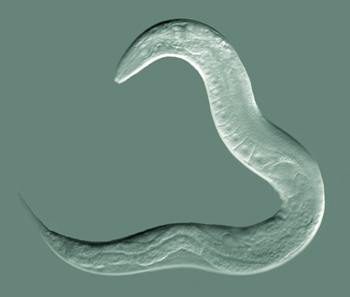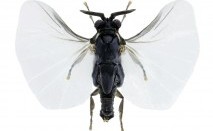
Category: Invertebrates

This diverse phylum is made up of an estimated 1 million species of roundworms, many of which are parasitic. Nematodes have adapted to almost every possible habitat on earth, including marine and freshwater habitats, soils, tropical to desert to polar climates, and from very low to very high elevations. They are quite literally everywhere, and they outnumber us and all other animals in species count and actual numbers by a long shot! Species of these slender worms can vary greatly in size, from microscopic proportions to over a meter in length! Widely known roundworms include hookworms, pinworms, whipworms, and the species that causes trichinosis.

Body horror in the insect kingdom
Learning about animals, you can discover many fascinating, even beautiful facts, but there are also things that can give you nightmares! Enter the strepsiptera (“twisted-wing parasite”). The adult female has no limbs, wings, or mouth - she simply lives in and feeds off her host (typically a wasp). When it becomes time to mate, she protrudes part of her abdomen from between the plates of her host and uses mind control to get the wasp to fly off to nearby males. Sexually mature males have wings, and fly around for about five hours before dying - spending their entire short existence seeking out females to mate with. After the female is impregnated, her own young grow and consume her. And once there is nothing left to eat, they leave their host wasp, infiltrate the nursery, and latch on to a larvae to create their own “zombie wasp” host and continue the grisly cycle!
Learn more >>
 Discover Animals is a web-based educational resource offered by the NAIA
Discover Animals is a web-based educational resource offered by the NAIA